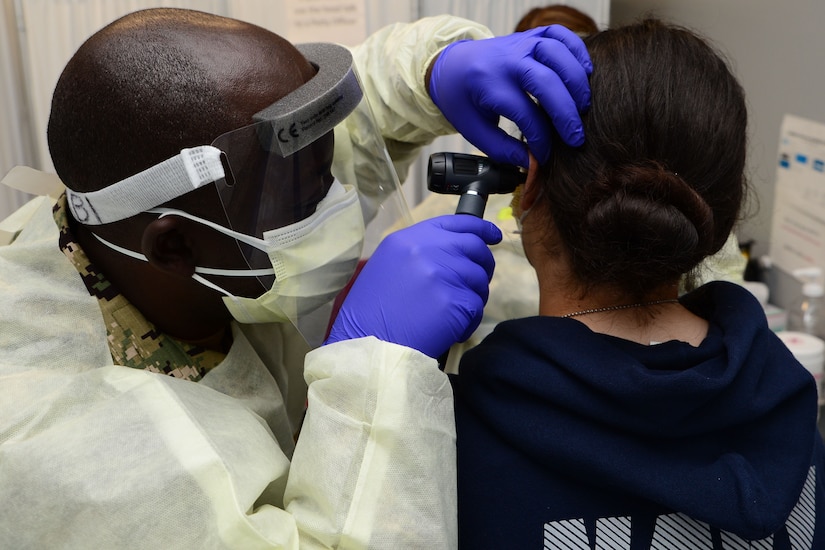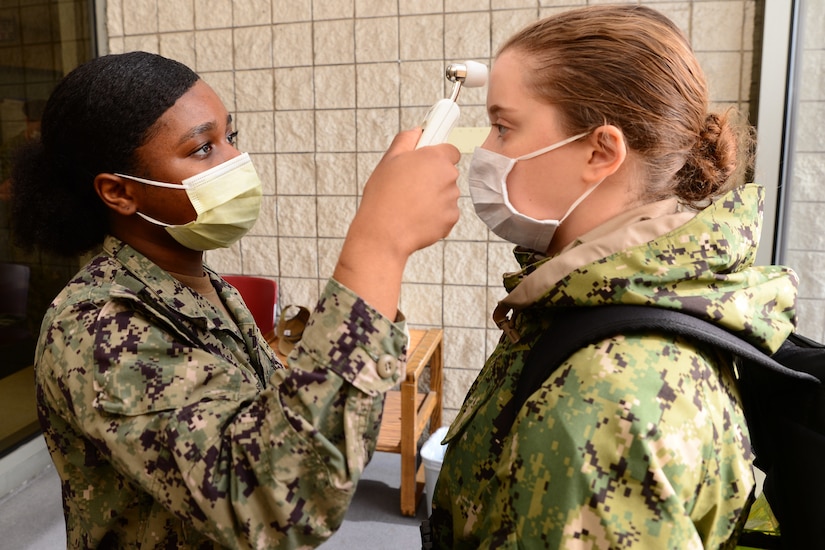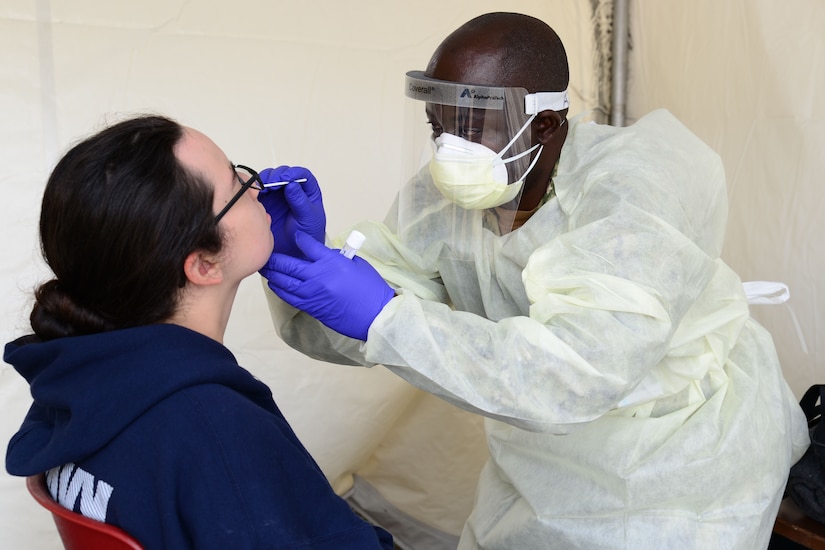"I'm just grateful to help during this time," said Navy Petty Officer 2nd Class Jon Doliana, a hospital corpsman. Doliana was deployed to the COVID-19 respiratory clinic activated at Great Lakes.
"I love being here doing whatever the Navy needs me to do," the Nashville, Tennessee, native said.
As COVID-19 became a global concern, the Lovell Health Care Center altered many of its practices to safeguard patients and staff, but the mission didn't change. Since it was established in 2010 as the nation's first fully integrated federal health care center in support of both the Defense and Veterans Affairs departments, one of the center's main missions is medically preparing Navy recruits for military service. The pandemic has not diminished the need for military readiness and it has greatly increased the amount of medical resources needed to accomplish that goal.

On June 3, a select team of 81 Navy Reserve medical personnel mobilized to Great Lakes as part of the DOD's response to the pandemic. Reservists were deployed from their hometowns and from multiple units — including the Expeditionary Medical Facility Bethesda, Maryland, and the Naval Reserve Center Nashville, Tennessee — to augment the fleet's active-component staff. The team is led by Navy Capt. Rebecca Zornado from Oceanside, California. Teams include hospital corpsmen and members of the Medical Service Corps, Medical Corps, Nurse Corps, and other enlisted support staff, including personnel support and yeomen.
As part of the strategy to prevent the spread of COVID-19 throughout the boot camp population, the Navy restricted the off-base movement of all Navy recruits at a nearby lodge and hotels before they began their boot camp, and the nursing staff checks the "pre-recruits" daily for COVID-19 symptoms. The screening includes an evaluation for both typical and atypical symptoms.
"It's been a huge benefit having the reservists onboard," said Navy Cmdr. (Dr.) Robert Senko, who usually is the director of primary care medicine at Lovell FHCC but has been overseeing the recruit restriction-of-movement process since it was implemented. Senko said the reservists have stepped up and taken charge of the respiratory clinics and sick call, as well as restriction-of-movement medical procedures.
The nurses assigned to the staff teams supervise the delivery of care and nasopharyngeal swabbing procedures to ensure optimal screening standards and appropriate use of personal protective equipment, which all medical staff in direct contact with recruits use. The nurse practitioners also are responsible for screening, diagnosing and treating recruits.

The extra manpower is necessary as Lovell FHCC allows more face-to-face appointments with veterans and more recruits enter the restricted-movement period.
In addition to the extra effort needed to control the spread of COVID-19, Lovell FHCC's usual recruit health and dental care mission continues. Annually, it involves about 40,000 recruits. The facility operates three RTC branch medical clinics. At USS Red Rover, recruits receive immunizations and other medical procedures before being declared fit for full duty; the USS Osborne provides a full spectrum of dental services for recruits. But the USS Tranquility is the busiest, providing services from that range from sick call to mental health care and special physicals. The reservists have lightened the load.
Each reserve team implemented standard operating procedures for health protection in their work environment, including the use of personal protective equipment.

When asked what the biggest challenge of being deployed to Great Lakes during the COVID-19 pandemic is, Navy Chief Petty Officer Lisa Tran, a hospitalman from Houston, is unequivocal.
"Keeping up with the current research, which may change the next day, and keeping our corpsmen trained on the best medicine, the best practice at the time is somewhat of a challenge," she said. "But it's nothing we can't handle."
(Navy Seaman Recruit Minh-Thy Chu is assigned to the Captain James A. Lovell Federal Health Care Center.)








No comments:
Post a Comment